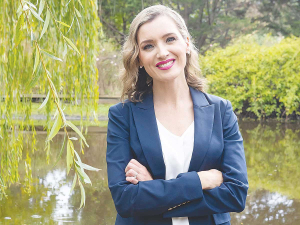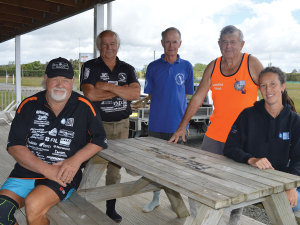It's daring and so gives the perpetrator a quick 'kick' in the form of a momentary illusion of elevated power, hilarity or status. The same act of sexual harassment that provides perverse power for the perpetrator has devastating impacts on the recipient.
Sexual harassment can take on unique forms. Whether it's a crass joke to the lads comparing a worker's breast size to cattle teats, or a slap on the bottom as someone exits a truck, it can really sting. Where it happens at work, the impacts spill into culture like lava, searing holes in safety, ruining respet and charring trust and belonging within teams. Ultimately though, it's workplace leaders who face the heat where sexual harassment simmers away in the workplace - because this is the law.
Yet, sexual harassment has been allowed to infiltrate all types of workplaces nationally for years. Statistics bounce about from study to study, but the research is clear that the behaviour is systemic. In one study, I travelled Australia to interview more than 100 rural women from industries including mining, farming, nursing, policing and retail. Of these participants, 73% said that they had experienced unwanted sexualised behaviour in their rural workplace.
The Backdrop of the Bush: "It's all a bit different out here."
Rural workplace environments often have a history of male influence and may also feature any combination of extreme temperatures, noise, isolation, language, physical labour. Workers are frequently contracted on a seasonal basis and it is important that swift trust be developed for safety and wellbeing.
Humour is often a pressure relief and banter is critical for morale, wellbeing and building team spirit. However, sometimes sexual jokes or innuendo become part of the performance of 'larrikinism' for mates, albeit without consciously setting out to humiliate, intimidate or offend another co-worker.
Sexual harassment in rural workplaces is fraught with unique complexities which may pose additional challenges. For many women, the prospect of being labelled a "dobber" keeps them silent. The fear of retaliation - social ostracism, whispers of "frigidity", or worse - transforms the workplace into a minefield. Women's experiences become dismissed as "just jokes," and complaints are trivialised as "a storm in a teacup". In these environments, the risk of speaking up often outweights the potential for justice. Employer duty to eliminate sexual harassment: "Let's just get on with it."
Gone are the days when workplace leaders could afford to dismiss this behaviour as a lower-priority concern. In New Zealand, the Human Rights Act 1993 makes sexual harassment unlawful in areas of public life, such as employment, housing, and in education. Even if the sexual harassment is unintentional and the person is unaware of how their behaviour is affecting another person, they can still be held responsible for their actions.
Simple strategies, such as clearly defining sexual harassment for workers and establishing clear reporting channels, can make a significance difference.
Leadership plays a pivotal role in dismantling this unacceptable culture. We need proactive leaders across all sectors, such as mining, agriculture, or small businesses who not only believe in a zero-tolerance policy but also demonstrate it. Employers must not only draft policies but actively ensure they are communicated and enforced. A 'tick and flick' approach to documentation is insufficient; firm principles of duty of care must be woven into the fabric of their workplaces.
This marks a new dawn for workplace culture and all of us have a role to play. By fostering strong workplace cultures in line with law, challenging attitudes about gender at work and encouraging open dialogue, we can transform "the way that things are done out here". Together, we can reclaim the dignity and respect that every worker deserves, ensuring that our rural workplaces are safe, joyful and free from sexual harassment.
Dr Skye Charry, chief consultant S.A.C. Consulting Australia and Associate Professor (Law), University of New England.

















